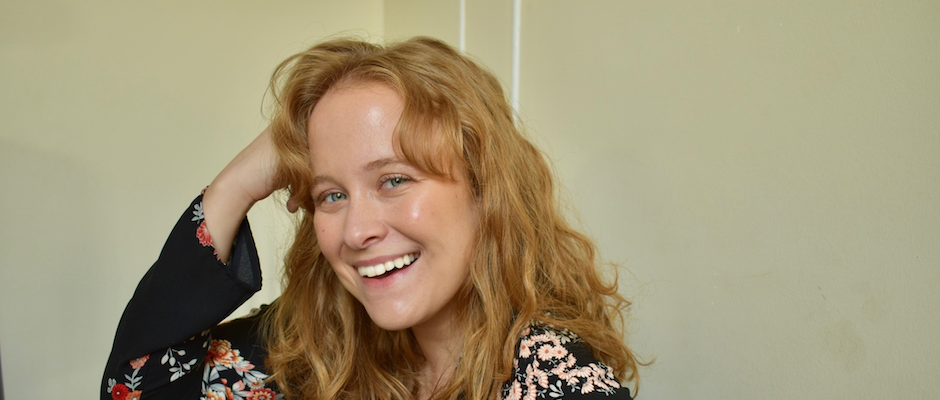
In my long, painful road to discovering and treating my endometriosis, one of the pit stops was an interstitial cystitis (IC) diagnosis. Nicknamed the “evil twin” of endometriosis due to their frequent comorbidity, IC is characterized by chronic bladder pain in the absence of any infection or other source of urinary inflammation and can occur with lesions on the bladder. When I was first diagnosed with IC in 2020, I came across a quote from a doctor in a medical journal on urology published in 1970 describing IC as, “confusing, poorly understood, baffling etiologically…it makes a thoughtful physician wonder about the possibility of a mildly masochistic woman, i.e., destructive need in the female, to suffer and to ‘have trouble with’ her genitourinary apparatus.”
A mildly masochistic woman. While IC has since been formally recognized as a legitimate medical condition, such seemingly archaic comments from a 1970s medical professional reflect an attitude that remains implicit in women’s healthcare today. Studies have shown that women and people of color have significantly worse health outcomes, much of which stems from dismissal, belittlement and biased pathologizing from healthcare professionals. After two years of cascading symptoms and escalating diagnoses, punctuated with countless treatments and painful procedures—whose inefficacy seemed to baffle and frustrate the many doctors I sought help from—I have just begun to learn how pervasive and destructive this medical gaslighting can be. The further lack of adequate knowledge, attention and legitimacy given to women’s health concerns has dramatic impacts on women’s health outcomes. For women who, like me, receive an endometriosis diagnosis, this state of healthcare has been a painful lived reality.
Endometriosis occurs when tissue similar to the endometrium, which is the inner lining of the uterus, grows in areas outside the uterus, often wreaking havoc in the form of inflammation, erratic and severe menstrual cycles, and a host of other problems. Endometriosis affects about 10 percent of women aged 12 to 52, landing at around 200 million women worldwide. Yet despite this staggering number, endometriosis is notoriously underdiagnosed and has an average diagnostic delay of 7 to 10 years. Many women only receive the diagnosis if they experience fertility issues, which are estimated to impact between 30-50 percent of endometriosis patients. Research has shown, in fact, that women who go to doctors for infertility issues tend to receive an endometriosis diagnosis in half the time of those who go for dysmenorrhea, or painful menstruation—which, in striking comparison, impacts between 60-80 percent of people with endometriosis. This gap further seems to be more significant among young women, who tend to have longer diagnostic delays and are more likely to be ignored by doctors or told they are too young to have endometriosis, despite one survey showing that about two-thirds of women with this diagnosis experienced symptoms as an adolescent.
The emphasis put on infertility rather than the far more common symptom of dysmenorrhea speaks to a larger picture of menstruation stigma contributing to diagnostic delay. Painful periods are one of the most common symptoms of endometriosis, yet studies have shown that girls and women are less willing to discuss painful menstruation due to perceptions of stigma as well as an attitude of normalcy given to such pain; that is, patients report feeling brushed off by family and friends as well as doctors, who hold the expectation that intensely painful periods are a normal burden of womanhood. Put simply: girls and women who are suffering profoundly from endometriosis are staying quiet or being dismissed because they are being told, explicitly and otherwise, to suck it up.
I have struggled with painful ovulation and particularly difficult menstruation since middle school but had believed both to be normal (especially after my gynecologist assured me it was normal). Yet, it was not until a year and a half of collecting a laundry list of associated conditions, including IC, irritable bowel syndrome, postural orthostatic tachycardia syndrome (POTS), and pelvic floor dysfunction, to name the favorites, that I finally reached the endometriosis diagnosis that shed light on all these issues. It was not until February 2022, marking two years after serious symptoms began, that I was finally able to receive excision surgery—that is, surgery to cut out the endometriosis lesions. I was fortunate enough to have the surgery done at a clinic specifically dedicated to gynecologic surgeries with a special focus in endometriosis excision. Though excision surgery is considered the “gold standard” treatment for endometriosis by the Endometriosis Foundation for America, most medical establishments and institutions continue to practice ablation surgeries, or burning off the endometrial tissue, which have shown to be ineffective or providing only temporary relief. Indeed, despite a higher failure rate than excision, ablation is still widely practiced and largely considered the default treatment, and there are still far too few surgeons trained to do excision to meet the staggering need. Had I not had the resources to travel to and receive care from a specialty clinic, I would have been left waiting for up to a full year for surgery at the hospital where I was originally slated to undergo treatment. This wait time means that many women who are unable to seek care at specialty clinics are enduring months of intense pain and sometimes crippling symptoms from a disease that may worsen during the wait for surgery—that is of course, if they have received their endometriosis diagnosis, which likely already took several years at least.
Despite my own difficult path to this point, my experience echoes one shared by countless women with endometriosis and its comorbidities. Many endometriosis patients have waited years for a diagnosis, experienced misdiagnoses, or have had failed or unnecessary surgeries, often in the form of hysterectomies, ovariectomies or repeated ablation surgeries. Some have taken harsh hormonal therapy drugs and entered early menopause, dealing with a slew of sometimes severe side effects. Some women are told to “just get pregnant,” to ease endometriosis symptoms (a common but seemingly fading myth), or to have more sex to address dyspareunia, or painful intercourse, another symptom of endometriosis (which is in fact the opposite of what people with dyspareunia should do). Still others with interstitial cystitis, endometriosis’ “evil twin,” have been told to “relax and have a glass of wine,” or gaslit to believe that psychological problems were the real culprit causing their pain. From my own experiences and those relayed to me through support groups, online forums and healthcare workers, it is clear that women with endometriosis and other related conditions are frequently subject to medical gaslighting and dismissal, and exasperatedly thrown various treatments—often quite painful or severe ones—with blame seeming to fall on them if these treatments failed.
When my gynecologist declared two years ago, with clear frustration and a hint of irritation in her voice, that she was “grasping at straws” and suggested my intense urinary pain was just from toilet paper that was too rough, I never would have guessed that she was overlooking a condition as common as endometriosis. I was and am exceedingly fortunate that I was equipped to look elsewhere for the right care. While it took several more doctors and treatment attempts— which included doctors blaming my anxiety for my symptoms, grilling me on my workout routines, and my trying countless diets and painful, ineffectual treatments—I was able to find the doctors I needed, and am now on a path towards healing. Reaching this point would have been impossible without the resources, time and mobility I had at my disposal; as a white, cisgender woman with economic privilege, my navigation of our healthcare system was far less fraught than for so many other women. From being able to afford medical treatment, to having the time and tools to research, travel to appointments, and take control over one’s health, accessing the right healthcare is extremely difficult, and equal access for society as a whole will require a radical shift from the healthcare structures that are currently in place. Not only is our healthcare system structured to make access difficult and exclusive, it is also systematically imbued with the same issues that underlie so much of our society—in this case, profound access inequity alongside attitudes of misogyny, implicit racial bias, and the lasting stigma that women are “hysteric,” i.e., unreliable and irrational when it comes to how they express the pain they experience.
We must change this narrative. Women’s voices must be centrally valued in healthcare, and indeed in all spaces of authority. Until that happens, I know I will continue sharing my own story, amplifying others’, and leaning on the other “mildly masochistic” women refusing to be gaslit any longer.
Hannah George (she/hers) is a senior at Harvard College from Sharon, PA studying Government and Ethnicity, Migration and Rights. She is currently taking time off from school to recover from endometriosis excision surgery, and is passionate about women’s healthcare and reproductive health justice.
Editor's note: Would you like to contribute to EndoStories? Click here to learn how to submit your work.
*Patient stories submitted to EndoFound.org are the views of the patient and not necessarily those of the foundation. All testimonials are from real patients, and may not reflect the typical patient’s experience, and are not intended to represent or guarantee that anyone will achieve the same or similar results.









